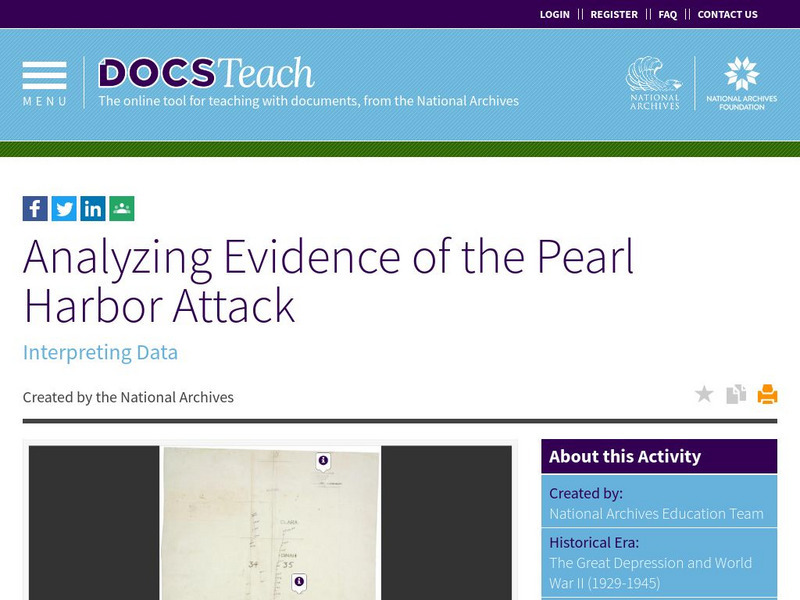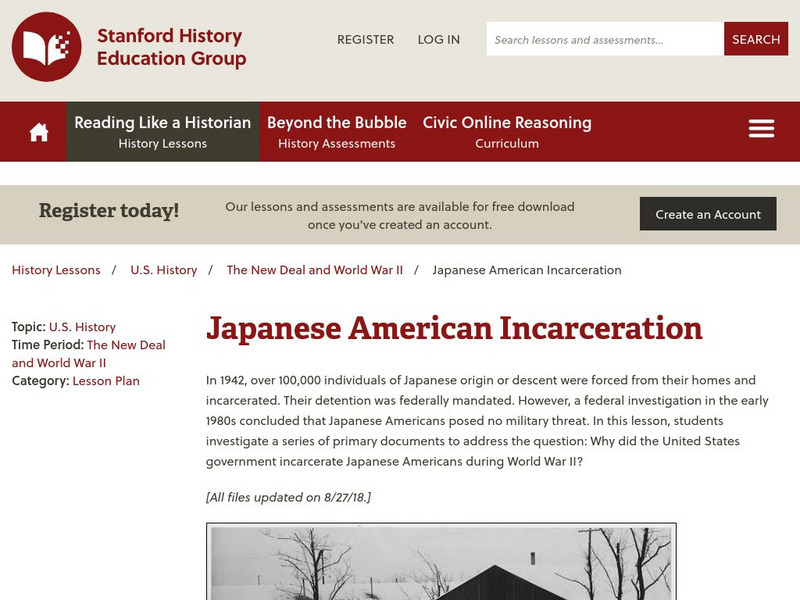Hi, what do you want to do?
Curated OER
World War II Alien Enemy Control Program
Students review the history and language of the Alien Enemies Act and related laws as well as the Constitutional challenges it presents. They also review the World War II Alien Enemy Control Program and the Alien Enemy Hearing Board...
Curated OER
A Date Which Will Live in Infamy
Students analyze Franklin D. Roosevelt's "Day of Infamy" War Address. Students read the original first typed draft of the speech, and compare handwritten changes with the original to determine whether the changes strengthened or weakened...
Curated OER
Harry M. Akune - Military Intelligence Service
Eleventh graders research the live of Harry M. Akune and his contributions during World War II.
Curated OER
Ethnic Groups in World War II
Pupils discuss the contributions of various ethnic groups during World War II prior to visiting the George Bush Gallery of the Pacific War. After the visit, they interview veterans about prejudice during the war or listen to a guesst...
Curated OER
Letters from the Japanese American Internment
Students make deductions about life in an internment camp by reading and comparing letters written to Clara Breed. Along the way, they consider the advantages of looking at a historical event from the multiple points of view of...
Curated OER
The White Line - A One Act Play
Students discuss amendments of the Constitution that cover due process and discuss them in relation to the play "The White Line". They determine how national security measures conflict with the issues of due process during wartime. They...
Curated OER
The Christmas Train to Ft. Lincoln
Young scholars solve the mysteries of why Karl Vogt and Erich Braemer were on the Christmas Train. They review the definitions of the terms constitutional, human rights, due process, discovery, and the writ of habeas corpus. They review...
US National Archives
Docs Teach: Analyzing Evidence of the Pearl Harbor Attack
This activity is intended to get students thinking about where information comes from, how it is presented, how its presentation affects understanding, and how information is used. Because the featured document relates to the Japanese...
US National Archives
Docs Teach: "A Date Which Will Live in ": Two Versions of Fdr's Infamy Speech
This activity presents learners with two versions of President Franklin D. Roosevelt's famous speech following the Japanese attack on Pearl Harbor-an earlier typewritten draft and his final reading copy. Students will read, analyze, and...
Stanford University
Sheg: Document Based History: Reading Like a Historian: Japanese Internment
[Free Registration/Login Required] A lesson delving into the reasoning behind interning the Japanese-Americans following the Pearl Harbor attack. Students will explore primary source documents to draw their conclusions.
Alabama Learning Exchange
Alex: Fdr's War Message to Congress Fact or Opinion
Eleventh graders will read FDR's War Message to Congress with a partner recording important details as fact or opinion.















